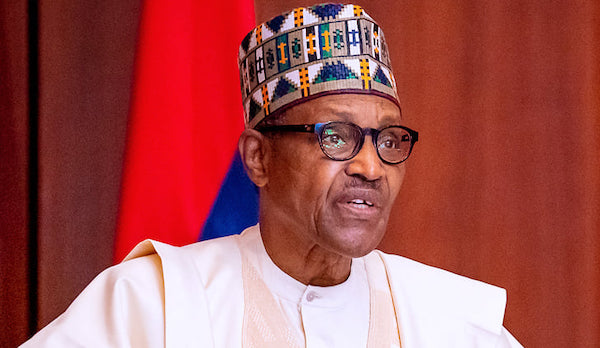Aso Rock Watch
ASO ROCK WATCH: Buhari’s unfinished Twitter wars. Two other talking points

Minister of Information and culture, Alhaji Lai Mohammed, on June 4 announced the indefinite suspension of the operations of the social media giant two days after President Muhammadu Buhari’s widely perceived controversial tweet to deal with secessionists was deleted.
Garba Shehu, Buhari’s Senior Special Assistant on Media and Publicity, as usual, laboured to find justifications for the actions of government days later.
This story, and two others from Aso Rock Villa, have been on the lips of Nigerians.
Buhari-Twitter war
On June 5, presidential spokesman, Shehu, had this to say about the removal of President Buhari’s tweet from the micro-blogging site, Twitter.
“The temporary suspension of Twitter is not just a response to the removal of the President’s post…All the while, the company has escaped accountability…the government’s action is not a knee-jerk reaction to Twitter’s preposterous deletion of his tweet which have been read in full. The tweet was not a threat, but a statement of fact.”
Not many would agree with Shehu that his principal’s reaction to the deletion by Twitter was not a knee-jerk exercise. In fact, the general feeling out there is that the suspension was nothing more than a clap back for Buhari’s bruised, and deflated ego.
Most Nigerians can’t also come to terms with an action that tends to make everyone suffer the consequences of Buhari’s issue with the tech medium.
Indeed, many have explained away Buhari’s action as a deliberate attempt to muzzle the opposition, and strip the citizenry of their right to speech as enshrined in the Constitution of the Federal Republic of Nigeria, 1999 (as amended).
And, the arguments are not far-fetched. With insecurity threatening to tear the country at the seams, and mass poverty looming, the Buhari-led administration appears to latch on to diversionary tactics as temporary relieve for mis-governance.
No where is the desperation more prevalent than in the actions of the Attorney-General and Minister of Justice, Abubakar Malami, threatening to prosecute defaulters under a non-existent law.
One question that pokes the mind, therefore, is whether the Buhari-led administration will resolve to engage Nigerians and Twitter or claw its way around with the attendant implications for rising tension and political instability.
Two other talking points
Invoking civil war ghost
President Buhari on June 1, issued a stern warning to those determined to destroy the country through promoting insurrection.
His Special Adviser on Media and Publicity, Femi Adesina, quoted the President as saying, among others, “Whoever wants the destruction of the system will soon have the shock of their lives. We’ve given them enough time…Those of us in the fields for 30 months, who went through the war, will treat them in the language they understand.”
Buhari’s controversial statement is held by many as lacking in emotional intelligence, ostensibly for tending towards resurrecting the ill-feelings and horrors of the Nigeria-Biafra civil war.
Some others, on the extreme side of the divide, have posited that the President’s statement only goes to confirm his alleged hatred and/or indifference towards the cries of marginalization by Ndigbo who are considered the main casualties of the genocidal war.
All said, the President’s mis-steps have arguably reawakened the fervent campaigns and clamour for secession by various interests in the zone.
What to do, perhaps, is not to bury its head in the sands, as an ostrich would do, but genuinely seek to engage its aggrieved citizens through a structured national dialogue or conversation.
Read also: ASO ROCK WATCH: Weighing Buhari’s ‘proud’ 6-year scorecard. Two other talking points
Pretending that the emerging crises, which now have a more national outlook, would disappear without a strategic response show absolute lack of tact and total failure of leadership.
In choosing not to act appropriately, President Buhari must take responsibility for the downward slide of the Nigerian nation.
Shehu’s counterattacks
On June 3, the Presidency reacted to an article published by an American magazine, Foreign Affairs, which detailed that Nigeria, as giant of Africa, is failing.
The Presidency’s reaction was contained in a statement by President Buhari’s Senior Spokesman, Garba Shehu, titled: ‘Re: Giant of Africa is failing’.
Emphasising that the article was unfair, Shehu noted that: “Nigeria faces multiple challenges, not least of which is the dissemination of fake news and prejudiced opinion,” adding that, “It is still a surprise, and a disappointment, to see them joined by Foreign Affairs.”
Shehu’s redress is not surprising. No negative report, even when it is obviously true, passes the attention of the Presidency without a claim of a witchunt by the Buhari administration.
Not just Foreign Affairs, Nigerian publications, including public affairs analysts, have harped on Nigeria’s failing state as evidenced in rising unemployment, unbridled corruption, mass poverty, worsening in security and threat to Nigeria’s sovereignty.
The overwhelming position is that the Buhari administration has shown little capacity to deal with these challenges, and one can only feel pity for Shehu as the public narrative may change not in the face of the present crises bedeviling the country.
By John Chukwu…
Join the conversation
Support Ripples Nigeria, hold up solutions journalism
Balanced, fearless journalism driven by data comes at huge financial costs.
As a media platform, we hold leadership accountable and will not trade the right to press freedom and free speech for a piece of cake.
If you like what we do, and are ready to uphold solutions journalism, kindly donate to the Ripples Nigeria cause.
Your support would help to ensure that citizens and institutions continue to have free access to credible and reliable information for societal development.

























